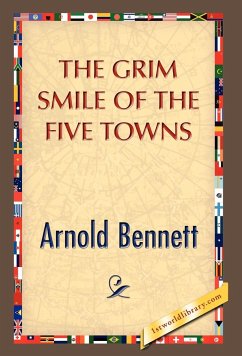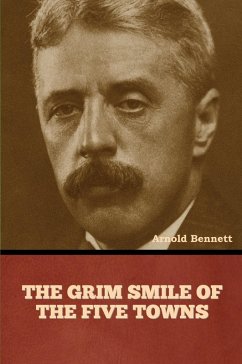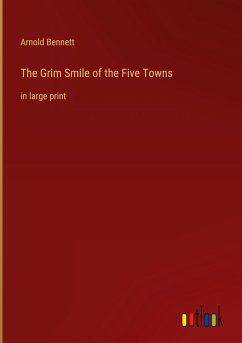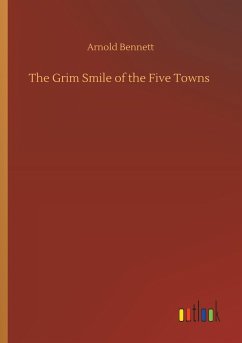
The Grim Smile of the Five Towns
Versandkostenfrei!
Versandfertig in über 4 Wochen
26,99 €
inkl. MwSt.

PAYBACK Punkte
13 °P sammeln!
In the Five Towns the following history is related by those who know it as something side-splittingly funny-as one of the best jokes that ever occurred in a district devoted to jokes. And I, too, have hitherto regarded it as such. But upon my soul, now that I come to write it down, it strikes me as being, after all, a pretty grim tragedy. However, you shall judge, and laugh or cry as you please. It began in the little house of Mrs Carpole, up at Bleakridge, on the hill between Bursley and Hanbridge. Mrs Carpole was the second Mrs Carpole, and her husband was dead. She had a stepson, Horace, an...
In the Five Towns the following history is related by those who know it as something side-splittingly funny-as one of the best jokes that ever occurred in a district devoted to jokes. And I, too, have hitherto regarded it as such. But upon my soul, now that I come to write it down, it strikes me as being, after all, a pretty grim tragedy. However, you shall judge, and laugh or cry as you please. It began in the little house of Mrs Carpole, up at Bleakridge, on the hill between Bursley and Hanbridge. Mrs Carpole was the second Mrs Carpole, and her husband was dead. She had a stepson, Horace, and a son of her own, Sidney. Horace is the hero, or the villain, of the history.












